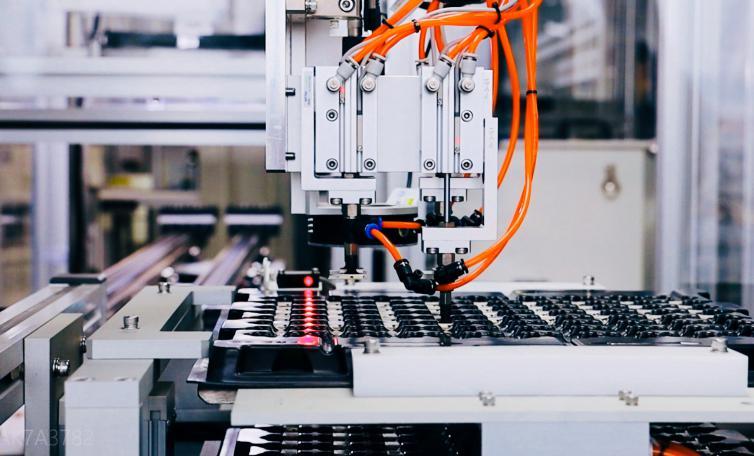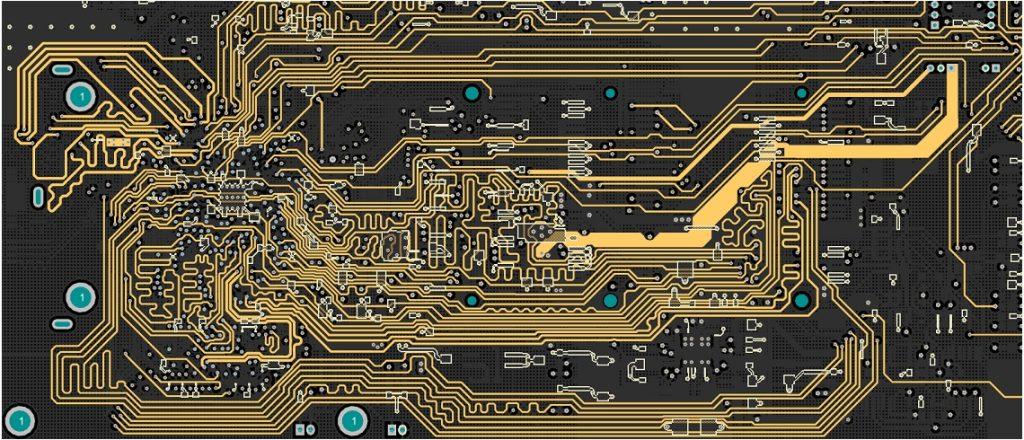PCB flex-rigid boards are a type of circuit board that combines the advantages of rigid and flexible PCBs. They are a cost-effective solution for industries that require high reliability, flexibility, and performance in their electronic products. These PCBs are used in various industries, such as aerospace, medical, military, and automotive.
Aerospace industry
The aerospace industry requires high-performance electronics that withstand harsh environments such as extreme temperatures, high altitudes, and vibration. Rigid and flexible printed circuit boards are ideal for this industry because they provide the rigidity required for high-performance electronics while allowing design flexibility to accommodate complex shapes and configurations. This makes them suitable for aerospace applications such as flight control systems, avionics, and airborne communication systems.
Regarding packaging technology, rigid-flexible printed circuit boards for aerospace applications use surface mount technology (SMT) and through-hole technology (THT). SMT is used for mounting small surface mount components, while THT is used for mounting larger components that require more electrical connections. SMT and THT are combined to provide the necessary functionality and reliability for aerospace applications.
Medical Industry
The medical industry requires highly reliable electronics for medical devices and equipment. Rigid and flexible printed circuit boards are ideal for this industry because they can withstand harsh environments such as exposure to body fluids, extreme temperatures, and high humidity. They are also designed to be flexible and lightweight, making them suitable for use in portable medical devices.
Regarding packaging technology, rigid-flexible printed circuit boards for medical applications use surface mount technology (SMT) and ball grid array (BGA) technology. SMT is used for mounting small surface mount components, while BGA is used for mounting larger components that require more electrical connections. This combination provides the necessary functionality and reliability for medical devices.
Military Industry
The military industry requires electronics that can withstand harsh environments, such as extreme temperatures, shock, and vibration. Rigid and flexible printed circuit boards are ideal for this industry because they provide the necessary stiffness needed for high-performance electronics while also allowing flexibility in design to accommodate complex shapes and configurations. This makes them suitable for military applications such as communication, navigation, and weapons control systems.
Regarding packaging technology, rigid-flexible printed circuit boards for military applications use surface mount technology (SMT) and through-hole technology (THT). SMT is used for mounting small surface mount components, while THT is used for mounting larger components that require more electrical connections. SMT and THT are combined to provide the necessary functionality and reliability for military applications.
Automotive Industry
The automotive industry requires electronics that can withstand harsh environments such as heat, vibration, and humidity. Rigid and flexible printed circuit boards are ideal for this industry because they provide the necessary stiffness required for high-performance electronics while allowing flexibility in design to accommodate complex shapes and configurations. This makes them suitable for automotive applications such as engine control, navigation, and infotainment systems.
Regarding packaging technology, rigid-flexible printed circuit boards for automotive applications use surface mount technology (SMT) and ball grid array (BGA) technology. Surface mount technology is used to mount small surface mount components, while BGA mounts larger components requiring more electrical connections. This combination provides the necessary functionality and reliability for automotive applications.
In summary, PCB rigid-flex boards not only maximize space usage and minimize weight but also greatly increase reliability, thereby eliminating much of the need for soldered joints and fragile and delicate wiring prone to connection problems. Rigid-flex PCBs can benefit almost any advanced electrical application. If you need a rigid-flex PCB, you can contact us directly to work with us.


